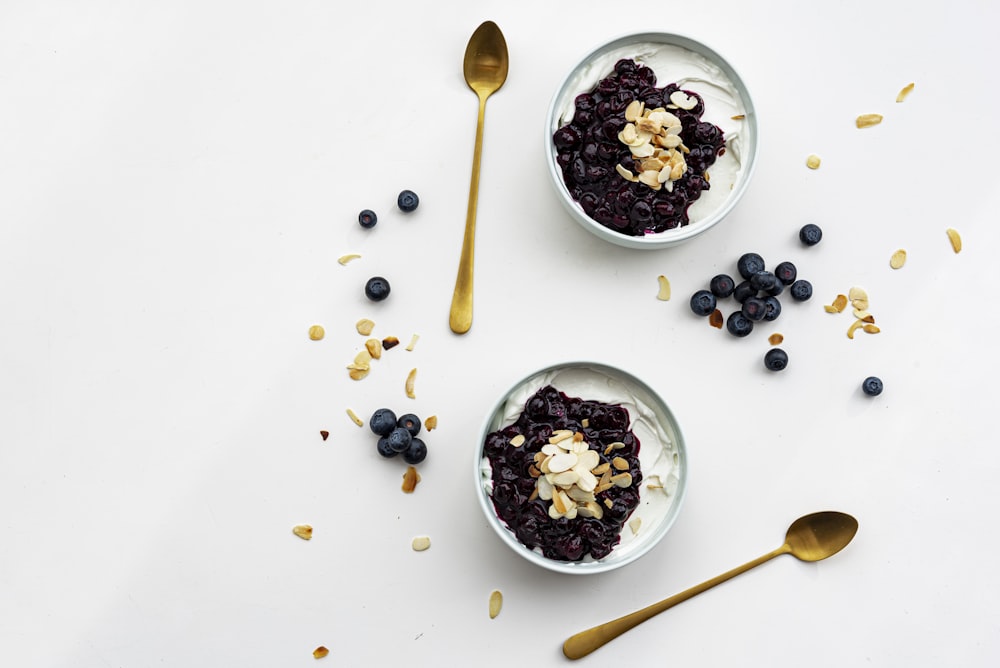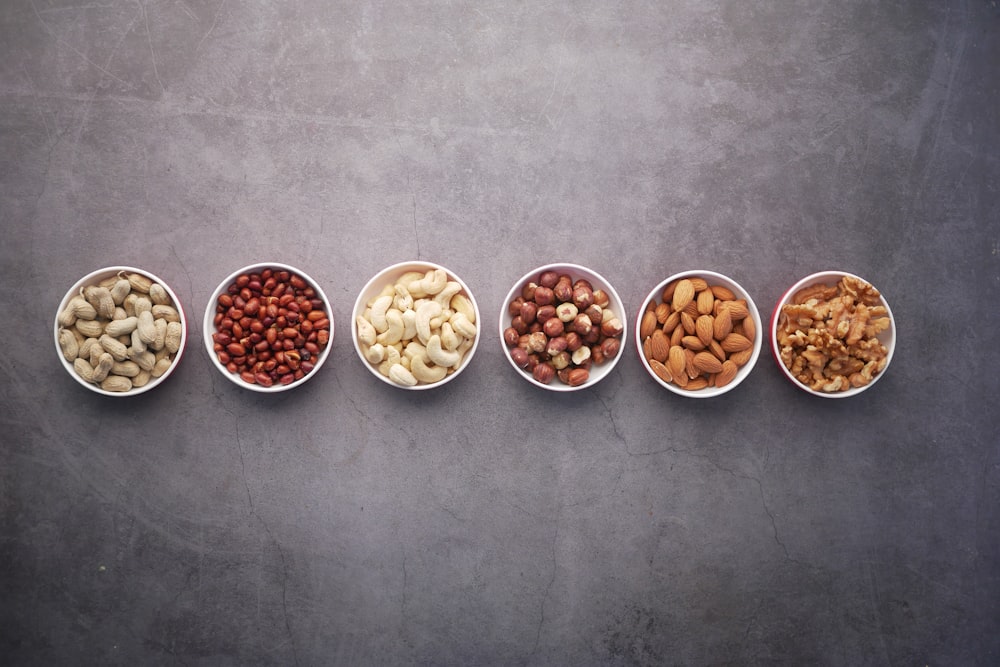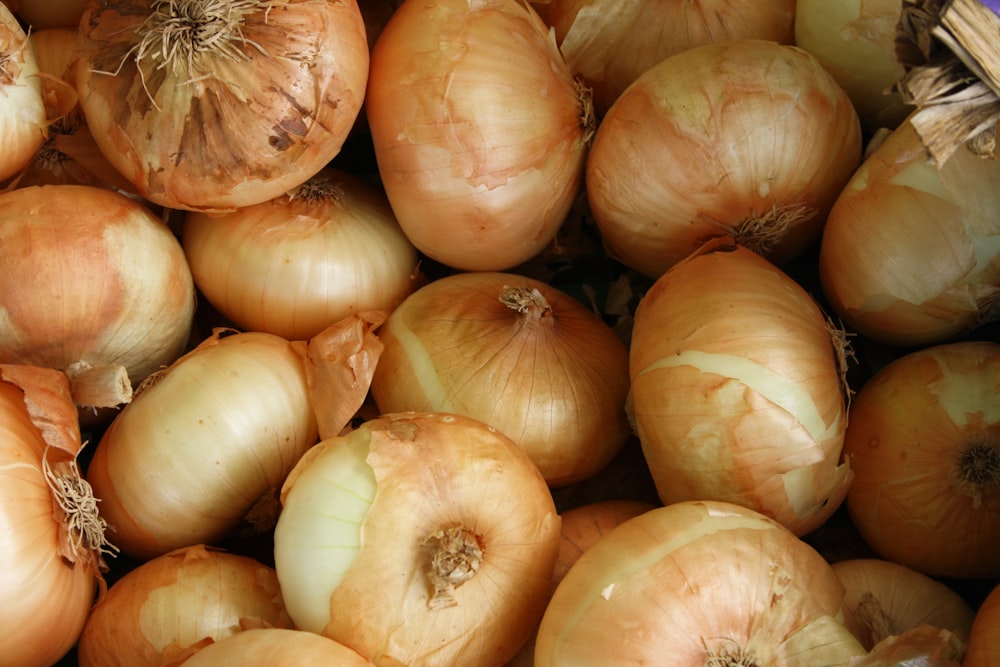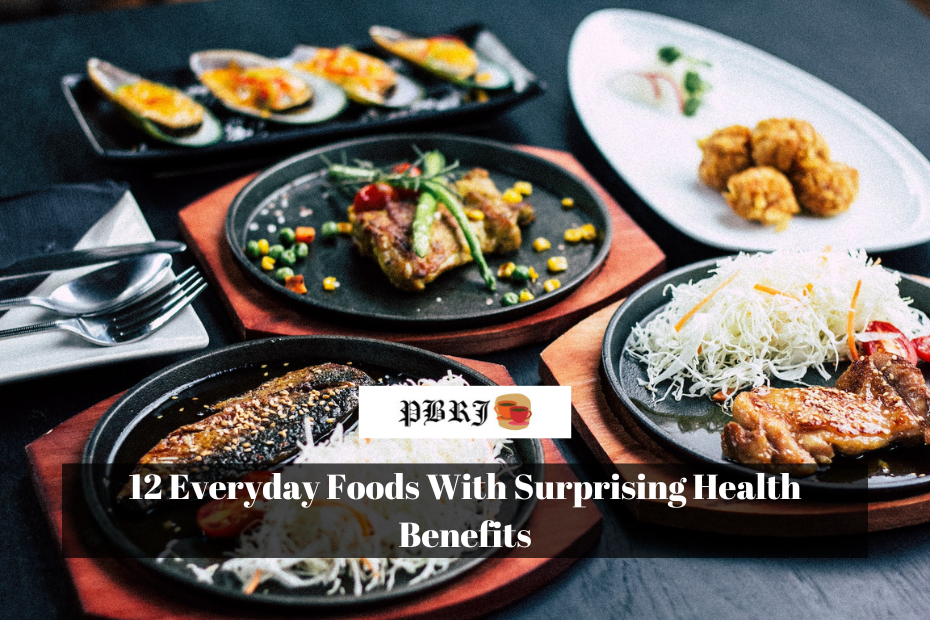There are numerous essentials you likely already possess that provide you with numerous health benefits. Regardless of whether your preferred food is pasta or fruit, if you have a varied diet, you are likely already receiving all of the nutrients you require.
We are here to debunk the notion that expensive and often inaccessible supplements are the only way to achieve optimal health. Here are some commonplace foods that provide numerous health benefits.
1. Bread

You presumably did not anticipate seeing this on the list. Bread can be packed with essential nutrients such as folate, iron, and fiber, and is a staple in the majority of households. White bread can spike your blood sugar levels and has little nutritional value besides carbohydrates (unless it’s enriched white bread, which is fortified with vitamins and minerals like thiamine (B1).
2. Oats

On this list, oats are one of my fave foods. They are versatile, relatively simple to use, and affordable. In terms of their nutritional profile, oats carry a powerful punch. According to the United States Department of Agriculture, oats are rich in complex carbohydrates, fiber, and essential vitamins.
And minerals such as vitamins B1, B3, B5, B6, folate, and iron. Oats are also whole grain, and a meta-analysis found that those with the highest whole-grain intakes had a 21% lower risk of heart disease than those with the lowest whole-grain intakes. Another meta-analysis that included studies that followed individuals with type 2 diabetes found that oat consumption substantially.
Reduced post-meal blood sugar spikes. Instant oatmeal is more processed and has a slightly higher glycemic index, so choose steel-cut or rolled oats for maximum health benefits.
3. Sweet potatoes
This orange-colored root vegetable is also versatile, as it can be fried, broiled, boiled, sautéed, mashed, baked, or air-fried. It may also be beige or purple in color. Sweet potatoes are loaded with dietary fiber, vitamin C, potassium, and beta-carotene, which the body converts into vitamin A.
One large sweet potato provides 400% of the recommended daily allowance of vitamin A. Vitamin A, according to the Mayo Clinic, promotes optimal vision and a robust immune system.
4. Pasta

You’re likely thrilled to see yet another fan favorite on this roster. Pasta is made from wheat, a grain, which is one of the essential dietary groups for a healthy diet. Some varieties of pasta lose their nutritional value during the refining process.
The majority, however, are fortified with folate, iron, and vitamin B. If you’re searching for a refined-free option, consider whole grain pasta, which has been shown to keep you fuller for longer, or vegetable-based pasta.
Chickpea pasta has recently gained popularity and is high in fiber and protein, making it an excellent option for vegans and vegetarians.
5. Eggs

Eggs are rich in protein, iron, selenium, phosphorus, and the vitamins B2, B5, and B12. In addition, they keep you satisfied longer, which can be beneficial for maintaining a healthy eating schedule. Due to their cholesterol content, eggs have developed a negative reputation.
A large egg contains approximately 186 mg of cholesterol, which is slightly more than half of the recommended daily intake (300 mg) for those without a heart disease risk. If you are at risk for heart disease, one large egg nearly meets the recommended daily intake of cholesterol (200 milligrams).
Despite the amount of cholesterol contained in eggs, research indicates that it does not appear to increase your body’s cholesterol levels in the same way that trans fats and saturated fats do.
6. Yogurt

Yogurt is another of these readily available, inexpensive, and convenient nutrients. It is rich in calcium, protein, and microorganisms. Typically, milk is pasteurized and fermented with live microorganisms to create yogurt.
Yogurt has numerous health benefits, including facilitating digestion, preventing osteoporosis, and managing irritable bowel syndrome. Medical School recommends choosing plain or Greek yogurt with basic ingredients and no added sugars when purchasing yogurt for maximum health benefits.
7. Garlic
I’m a huge garlic aficionado. I include it in the majority of savory dishes I prepare at home. In addition to enhancing the flavor of food, garlic has numerous health benefits. It has been associated with lower levels of inflammation and cholesterol.
Garlic may also aid digestion if you suffer from digestive problems. However, it’s crucial to pay attention to your body, as consuming too much garlic can also cause gas. Garlic may also reduce blood sugar levels and the likelihood of acquiring a cold or the flu.
8. Green tea

Great! Because it likely contains a high concentration of antioxidants, which can protect against free radicals (pesky atoms that can cause cell damage). Green tea is a nutrient-rich, low-calorie beverage with a high polyphenol content, which can protect against oxidative damage and reduce inflammation.
Green tea is also associated with numerous health benefits, such as lowering cholesterol levels and promoting cardiac health. The National Cancer Institute reports that consuming green tea is also associated with a reduced risk of developing certain types of cancer.
9. Berries
Berries are among the most nutrient-dense foods you can keep at home. They are an excellent source of vitamins C and K, prebiotics, potassium, fiber, and antioxidants. Berries also contain disease-fighting nutrients that may reduce the risk of age-related diseases such as type 2 diabetes and cardiovascular disease. Berry consumption is also associated with increased heart health, reduced inflammation, and enhanced immunity.
10. Bananas

Bananas should be on your radar if you’re searching for a fruit with a high nutrient density and numerous health benefits. They are an excellent source of fiber, vitamins B6 and C, and minerals including potassium and magnesium.
11. Nuts

Nuts offer numerous nutritional benefits. They contain an abundance of healthful fats, which can help regulate cholesterol levels and reduce inflammation associated with cardiovascular disease. Nuts also contain essential minerals such as magnesium, copper, iron, selenium, and zinc, all of which play vital roles in the development and proliferation of healthy cells.
Daily consumption of a handful of nuts can enhance vitality and digestion. Due to their high caloric density, a serving of almonds is quite small — only one ounce or a handful. If you’re searching for a nutritious refreshment, nuts are your best bet.
12. Onions

Onions Onions are not only versatile and tasty but also provide numerous health benefits. They are rich in vitamins, minerals, and antioxidants that improve heart health, enhance immune function, regulate blood sugar, reduce inflammation, and prevent certain cancers, among other health benefits. Additionally, onions contain prebiotic fiber, which promotes healthy digestion and can even improve sleep quality.
| Homepage | Click Here |
| 12 AMAZING FOODS TO EAT EVERY DAY (PLUS 5 EXTRAS) | Click Here |

